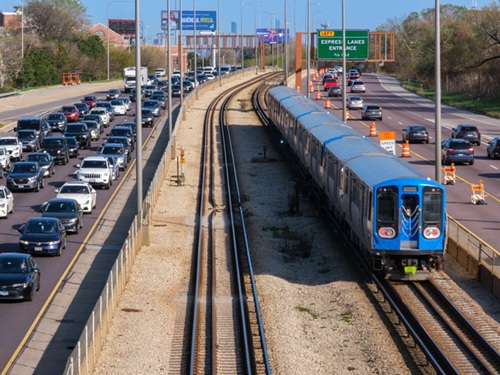In a state study with national implications, researchers at the University of Missouri found health and health care organizations are increasingly offering basic social services – especially transportation, housing, food, and mental health services – as they help improve the overall health of people living in rural areas.
[Above photo by MoDOT]
Those researchers found rural Missourians often face more disparities in health outcomes than their urban and suburban counterparts, in part from challenges accessing health care — a problem amplified in recent years by a growing physician shortage.
In the study, the school’s research team interviewed various health care organizations serving rural Missouri about their care coordination; organizations included behavioral health, federally qualified health centers and hospitals.
Their findings shed light on new roles health care organizations must play to improve health outcomes of rural Americans by providing basic services – especially where transportation is concerned.
“Transportation was the most commonly reported barrier addressed, particularly in rural areas where you have to travel farther distances, especially if you need specialized care, and the physician shortages in rural areas have made this barrier even worse,” explained Julie Kapp, an associate professor and lead author on the study, in a statement.
“Some families might just have one car that everyone shares, the car might not be reliable, or if families are working long hours while juggling household responsibilities, missing work to drive long distances might not be possible,” she noted.
Additionally, Kapp said Uber and Lyft do not operate in some rural areas, where residents often don’t have access to bus, train, or subway systems.
The university’s research team found that 100 percent of the health and health care organizations they interviewed provided assistance with transportation, while 86 percent provided support or referrals for mental health care, 79 percent provided food assistance, 71 percent provided housing assistance, and 50 percent provided dental assistance.
“One of the main takeaways of this research is that health care is much more broad today than before, and it incorporates basic social services that are often not thought of as health care related,” said Beau Underwood, a doctoral student who collaborated with Kapp on the study.
“We need to think beyond just what happens in the doctor’s office, and part of that is thinking about if patients have transportation to get to the doctor’s office in the first place, or if there is even a physician in the patient’s area,” Underwood added.
While the COVID-19 pandemic intensified some of the barriers for rural Missourians accessing health care, the study also identified what it termed “innovative solutions” that could potentially be expanded in the future.
“One organization we interviewed talked about partnering with a local food bank and dropping off the food at the patients’ door with contactless delivery,” Kapp said. “Another created their own transportation system when the one in their area shut down during the beginning of the pandemic. There was also an organization that would proactively call patients in between appointments and ask how they were doing or if they needed anything, which decreased the likelihood of missed appointments.”
 Nation
Nation


